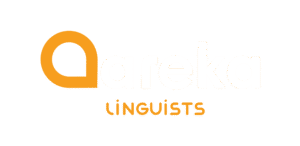In the field of medicine, even the smallest misunderstanding can have serious consequences. When it comes to translating medical documents, from patient education materials and informed consent forms to clinical trial protocols and pharmaceutical labels, accuracy isn’t just important; it’s essential. A key factor in achieving this precision is using native-speaking medical translators who understand not just the language, but the culture and nuances behind each word.
The Complexity of Medical Terminology
Medical language is layered and technical. Terms like “myocardial infarction” or “iatrogenic complications” are more than just clinical jargon—they carry weight in diagnosis, treatment, and patient comprehension. What makes medical terminology particularly complex is that many terms are derived from Latin or Greek and are used universally in the field, but they still need to be adapted in a way that makes sense in the target language.
Literal translation doesn’t always work. For example, the term “over-the-counter medication” might be misunderstood or misrepresented in a region where the concept doesn’t exist culturally or legally. Similarly, acronyms like MRI or CT scan may need explanation or equivalent localization, depending on the language and health literacy level of the target audience.
Why Native Speakers Make a Difference
A native medical translator brings an innate understanding of the target language, including idiomatic expressions, regional nuances, and context-driven choices. This is critical when:
- A single mistranslated word could alter the meaning of a diagnosis.
- Culturally sensitive terms require adaptation (e.g., discussing terminal illness, sexual health, or mental health).
- Medical slang or informal terminology is used, especially in patient-facing content.
For example, a native Spanish-speaking translator from Mexico may use different health-related terminology than one from Spain or Argentina. The choice of words can drastically affect patient understanding and engagement.
Precision vs. Literalism: A Real-World Concern
Consider this real-world challenge: The English term “discharge” can refer to being released from the hospital or to a medical symptom. In translation, the correct meaning depends entirely on context—and a literal translation by a non-native speaker could result in confusion or even harm.
Similarly, translating “compliance” in a clinical trial setting involves more than choosing the right word—it’s about conveying legal, ethical, and medical implications accurately. Native speakers who understand both the linguistic and contextual weight of such terms ensure nothing is lost or misrepresented.
Cultural Competency and Patient Safety
Medical translation is not just about language—it’s about cultural competency. Native translators are more likely to be aware of cultural sensitivities and taboos. This plays a huge role in:
- Translating mental health content (where stigma may be present).
- Conveying end-of-life care options with compassion and clarity.
- Ensuring dietary instructions respect religious or cultural food practices.
By bridging cultural gaps, native translators help prevent misunderstandings that could lead to non-adherence, mistrust, or worse—medical errors.
Beyond Language: Trust and Transparency
Healthcare is about trust. When patients receive medical information in their native language, and that too translated by a native speaker of that language, it builds confidence. Whether it’s instructions for medication, surgical consent, or post-op care guidance, patients are more likely to follow through when they fully understand what’s being communicated.
Conclusion
In the high-stakes world of healthcare, there’s no room for guesswork. Medical terminology is intricate, and the cost of inaccuracy is far too high. Native-speaking medical translators are not just language experts; they are guardians of clarity, accuracy, and safety. Their role is indispensable in making healthcare inclusive, precise, and trustworthy across linguistic boundaries.

